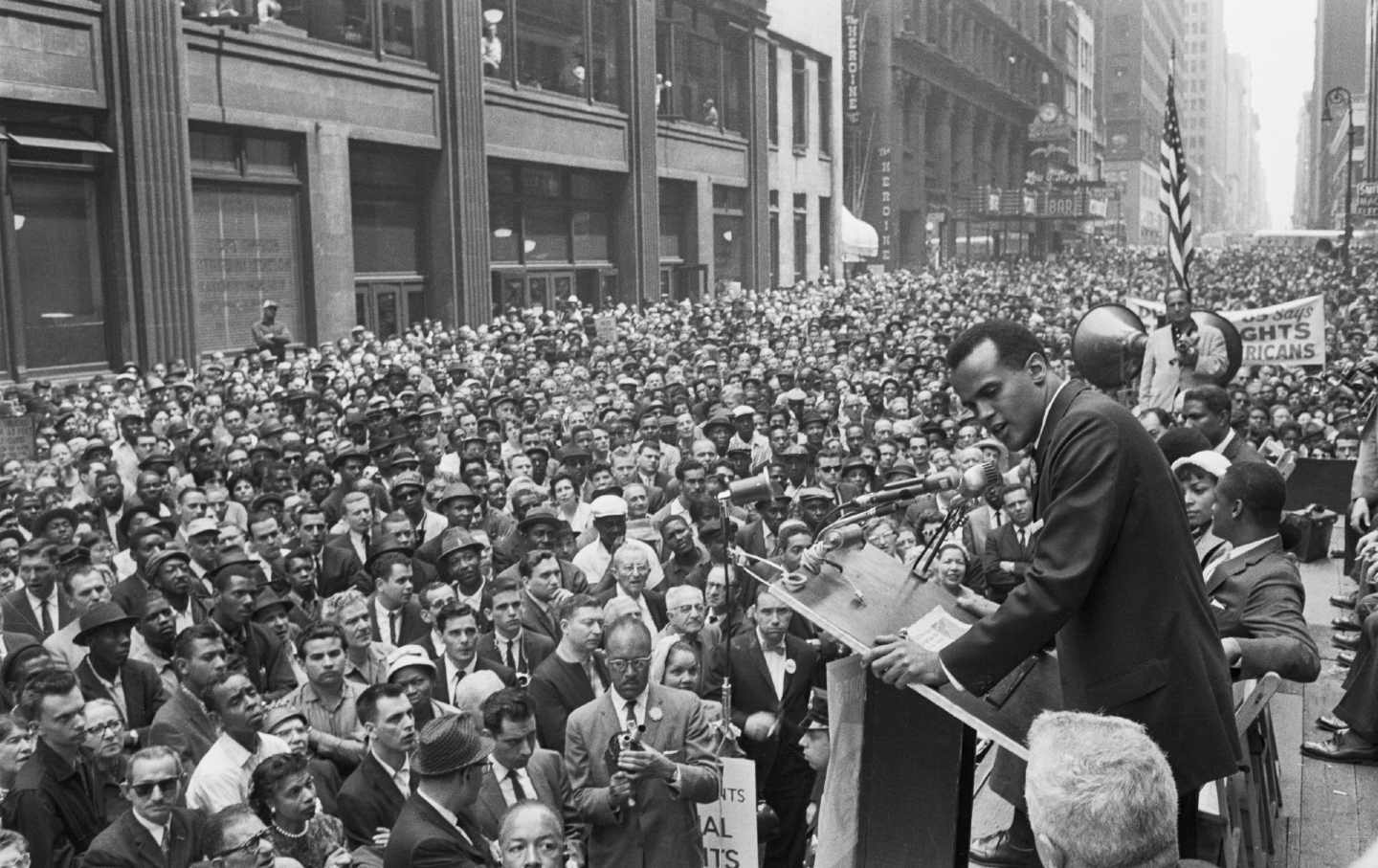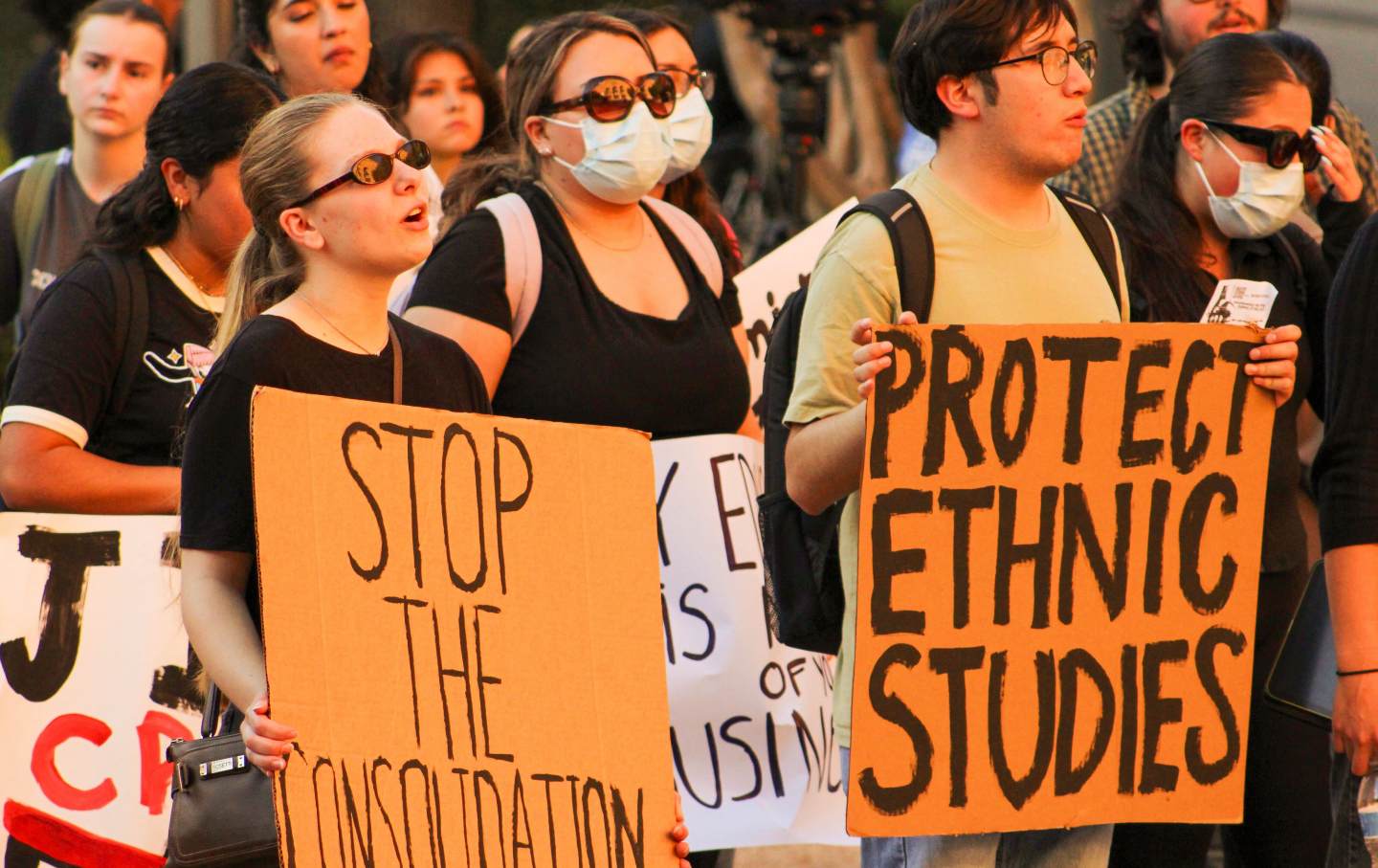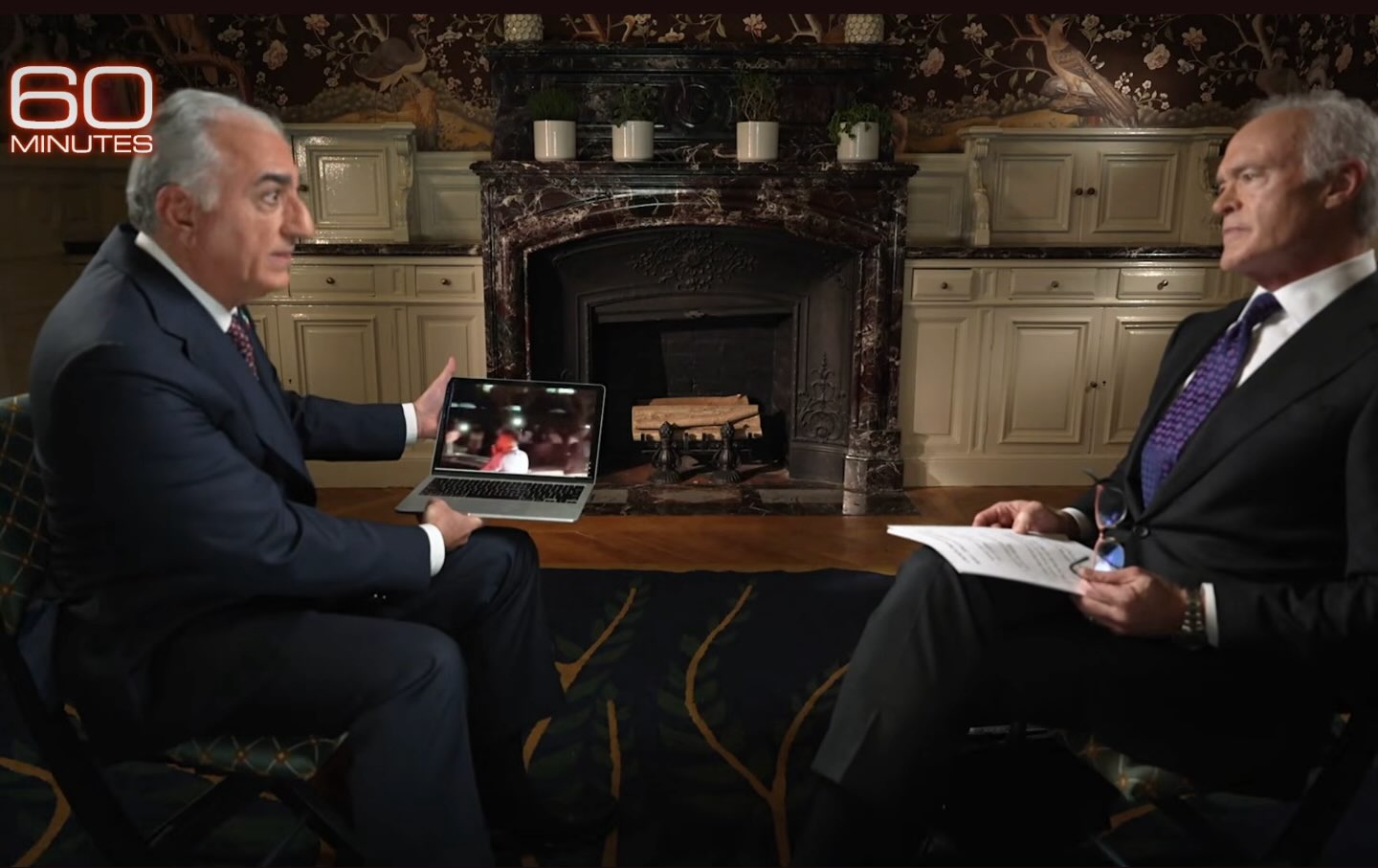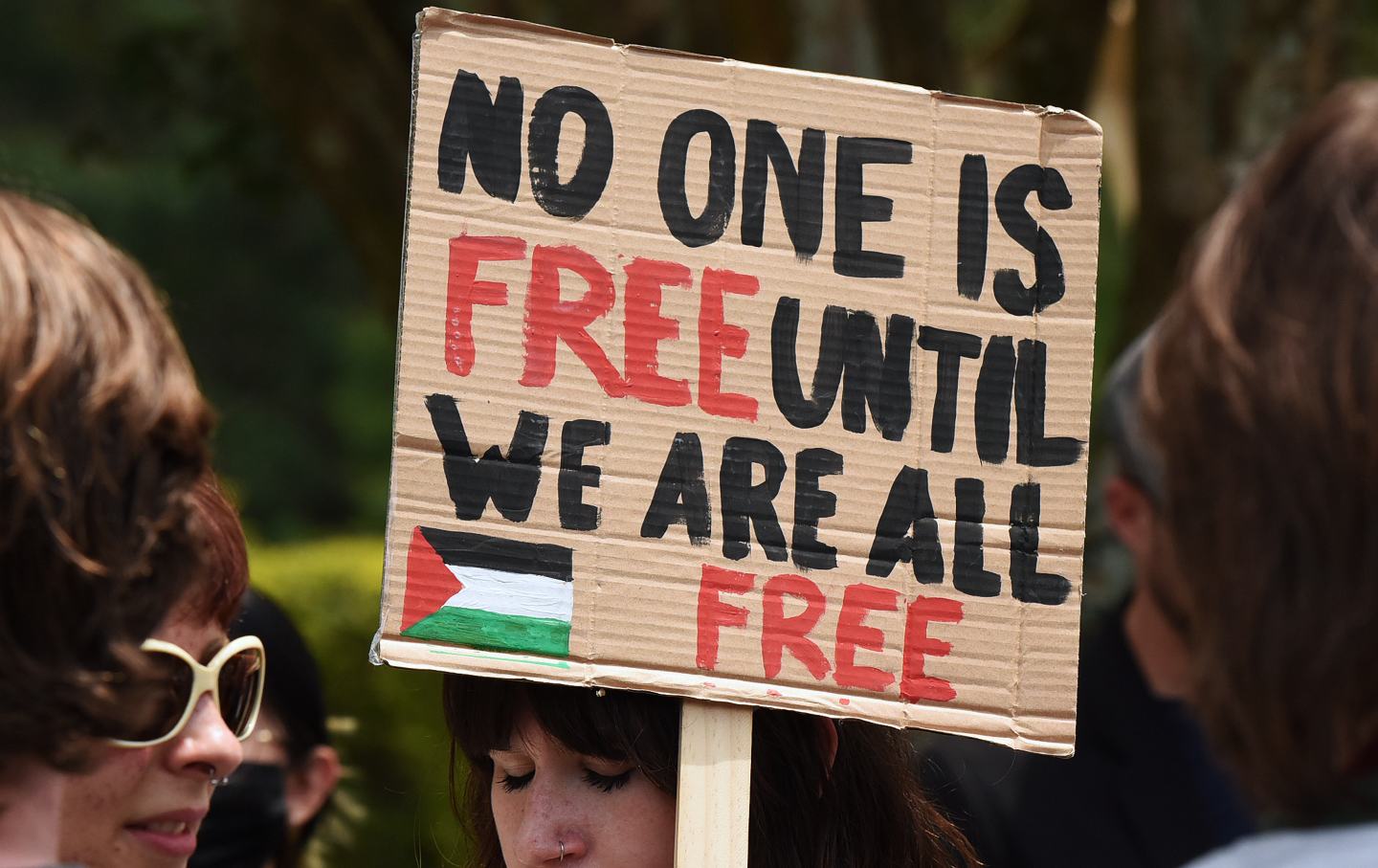From the Front Lines to the Corporate World: My DEI Journey
From intention to impact: a practical guide.

My professional journey started as a community organizer. In 2003, when I was 26 years old, I was introduced to Harry Belafonte. Among those in his circle were the Rev. Dr. Martin Luther King Jr. and singer-activist Paul Robeson. He supported causes from ending apartheid in South Africa to juvenile justice reform in the United States. These were the reasons we began working together—me, a young social activist, and Belafonte, who always supported freedom movements.
With his passing in April 2023, Belafonte left a legacy that shaped how thousands of younger activists—myself included—do their work. He will always be the one who modeled what he believed. When I was hired by Belafonte to work in marginalized communities to reduce youth violence, I needed to learn much more about the deeper roots of violence in these communities, in particular how people generate sources of revenue in places where economic opportunities and resources are few and far between. When people don’t have access to legitimate work and financing, they will turn to underground economies, often based on illegal transactions. Little did I know at the outset that this work would help me identify how calcified systems maintain the status quo of inequity and what it takes to shift those systems. What I learned working with Belafonte would shape the course of my work in diversity, equity, and inclusion (DEI) forever.
Being an activist was what I was born to do. When I was an undergraduate at Emerson College in the 1990s, I started a nonprofit called Mass VOTE in hopes of changing voting culture in Massachusetts. At that time, I had not planned on becoming a community organizer, but soon I would discover just how much this suited me: bringing people together to help them find and own their power.
Over 20-plus years spent in many different positions, I have worked to level the playing field and build power within communities. Through my work, I have had the honor of getting to know some of the most ignored groups in America. What I see again and again—whether in the Mississippi Delta or on the corporate headquarters on the 40th floor—is that until America, including companies, learns how to value the talent and contributions of people of color, racial equity will not be achievable.
Over the last 10 years, I have brought these observations and experiences into my work with corporations and government institutions. I have seen what it takes to ensure that DEI intentions have an actual impact.
A Time for Systems Change
Systems change is most vital when systems are failing. That’s why now is the right time to create systems that can respond to a 21st-century context as new lines are being drawn to confine the modern civil rights era, including corporate America efforts into DEI. Not surprisingly, those lines are also demarcations of political affiliation, as evidenced by the majority-conservative Supreme Court and its 2023 ruling against affirmative action on college campuses. That opened the door for more than 20 states to reverse the course on DEI. In what it called a “backlash against ‘wokeism,’” The New York Times observed that “the eradication of D.E.I. programs has become both a cause and message suffusing the American right.” Explicitly, this century is a time of generational realignment and acknowledgment of systems failure.
George Floyd’s murder was a wake-up call. In the aftermath, corporations doubled down on their public intentions to be more inclusive and equitable. Yet, beyond the pledges and promises, it’s hard to see the system changes that need to be made to result in real impact. This is the case for a few reasons. First, people don’t actually know where we are starting from with equity, never mind how to get to where they want to be. Second, changes to systems are hard to do when organizations are using those systems—who gets hired, who gets promoted, who is included or excluded from opportunities to innovate and create new ideas—to generate profits. Sadly, we are already seeing corporations retreat from their DEI commitments made after George Floyd.
That’s why DEI work seems hard on the best day and impossible on the worst—because moving from intention to impact means changing the traditions and culture that normalize whiteness. Like anything else that’s done unconsciously, white-centric actions feel natural in corporate America. But this blindness to bias makes changing whiteness almost impossible.
Many people may assume that DEI work means checking boxes, lowering standards, or, to be really blunt, playing favorites with women and people of color—all the while ignoring the plethora of data highlighting the overall benefits to company profitability from increasing diversity. Without question, centering whiteness carries a heavy economic cost.
The International Monetary Fund (IMF) observed that, in the United States, racism has stymied Black economic progress for decades. Examples abound, such as the denial of most people of color access to the benefits of the GI Bill, which propelled growth for the rest of the American middle class. The reason? Opposition from white congressmen from the South who clung to racial segregation. “Redlining” became the shorthand for Federal Housing Administration policy that refused insurance for mortgages on houses in black neighborhoods, effectively shutting black Americans out of home ownership and the means to accumulate wealth by owning property.
As the McKinsey Institute for Black Economic Mobility has observed: “There is a wide and persistent gap in wealth between white and black families.” However, efforts to close the racial wealth gap would result in the US GDP being 4 to 6 percent higher by 2028, resulting in more economic opportunity for all. It’s also a global issue, as the IMF report clearly shows. For example, in France, creating equality in access to employment and education could help boost that country’s GDP by 1.5 percent over the next 20 years, representing a $3.6 billion economic bonus. To capture this value in every country, the onus of change where systemic racism is concerned must be placed on every institution, across education, health care, criminal justice, culture, sports, and entertainment, and, of course, businesses in every economic sector.
Popular
“swipe left below to view more authors”Swipe →Engaging in DEI efforts means taking on the uncomfortable work of anti-racism, including taking reparative actions for black employees, such as addressing racial pay gaps and making commitments to advancement and succession planning that include people of color. Meaningful policy changes can level the playing field for highly qualified people of color and other underrepresented employees. Unearthing and eliminating conscious and unconscious biases goes a long way toward opening the gateway for significant change. DEI won’t look like a marketing campaign but rather will feel like a relationship-building exercise. Instead of becoming transactional, it will be transformational. This will foster more natural friendships within the workplace and encourage the community to speak up about what they need.
Serious and honest DEI work may very well make corporate managers nervous, and that’s OK. (Believe me, my company, the Lazu Group, hears it all the time.) Directly and indirectly, these business leaders voice the fear that they will lose their power as other communities make gains. Why wouldn’t they feel this way? When the system is rigged in their favor and it barely feels like privilege, it’s hard not to feel as though you’re giving something up. It’s a point I raise because it deserves emphasis: So much of the failure of early DEI work was because it underestimated the scarcity mentality that plagues so many people. Theirs is the untrue belief that if others win, they will lose.
That’s why one of the best pieces of advice for corporate leaders is to understand and anticipate the reactions to the work. DEI work challenges an individual narrative of where they sit in society, a scary thing for most humans to do. When it comes to changing ingrained tradition, you need to expect and plan for the pushback that will naturally happen. Any leader working to incorporate DEI work needs to know how to navigate these waters and understand the ramifications.
Adapted from From Intention to Impact: A Practical Guide to Diversity, Equity, and Inclusion by Malia Lazu (MIT Press).
More from The Nation

What Will Be Left After the University of Texas Destroys Itself? What Will Be Left After the University of Texas Destroys Itself?
UT-Austin has collapsed its race, ethnic, and gender studies into a single program while a new policy asks faculty to avoid “controversial” topics. But the attacks won’t end there...

The Corporate Media Is Head Over Heels for the Iran War The Corporate Media Is Head Over Heels for the Iran War
Donald Trump’s attack may be surreal, unjustified, and illegal. But that’s not stopping the press from turning the propaganda dial way up.

The Disturbing History of ICE’s “Death Cards” The Disturbing History of ICE’s “Death Cards”
The Vietnam-era practice is yet another example of ICE agents thrilling to the brutality they have been encouraged to cultivate.

The American Universities Programming Israel’s Killer Drones The American Universities Programming Israel’s Killer Drones
Industry partnerships in higher education are pushing STEM graduates into the business of weapons manufacturing and genocide profiteering.

The Red State–Blue State Healthcare Divide Is Dangerous for Everyone The Red State–Blue State Healthcare Divide Is Dangerous for Everyone
Whether or not you have access to independent, scientifically sound public health guidance may depend on how your state voted for governor.

In the Trump Era, Celebrating Black History Month Feels Radical Again In the Trump Era, Celebrating Black History Month Feels Radical Again
After putting on their very best performances of solidarity every Black History Month, this year corporate marketers have seemed at a loss for words.


